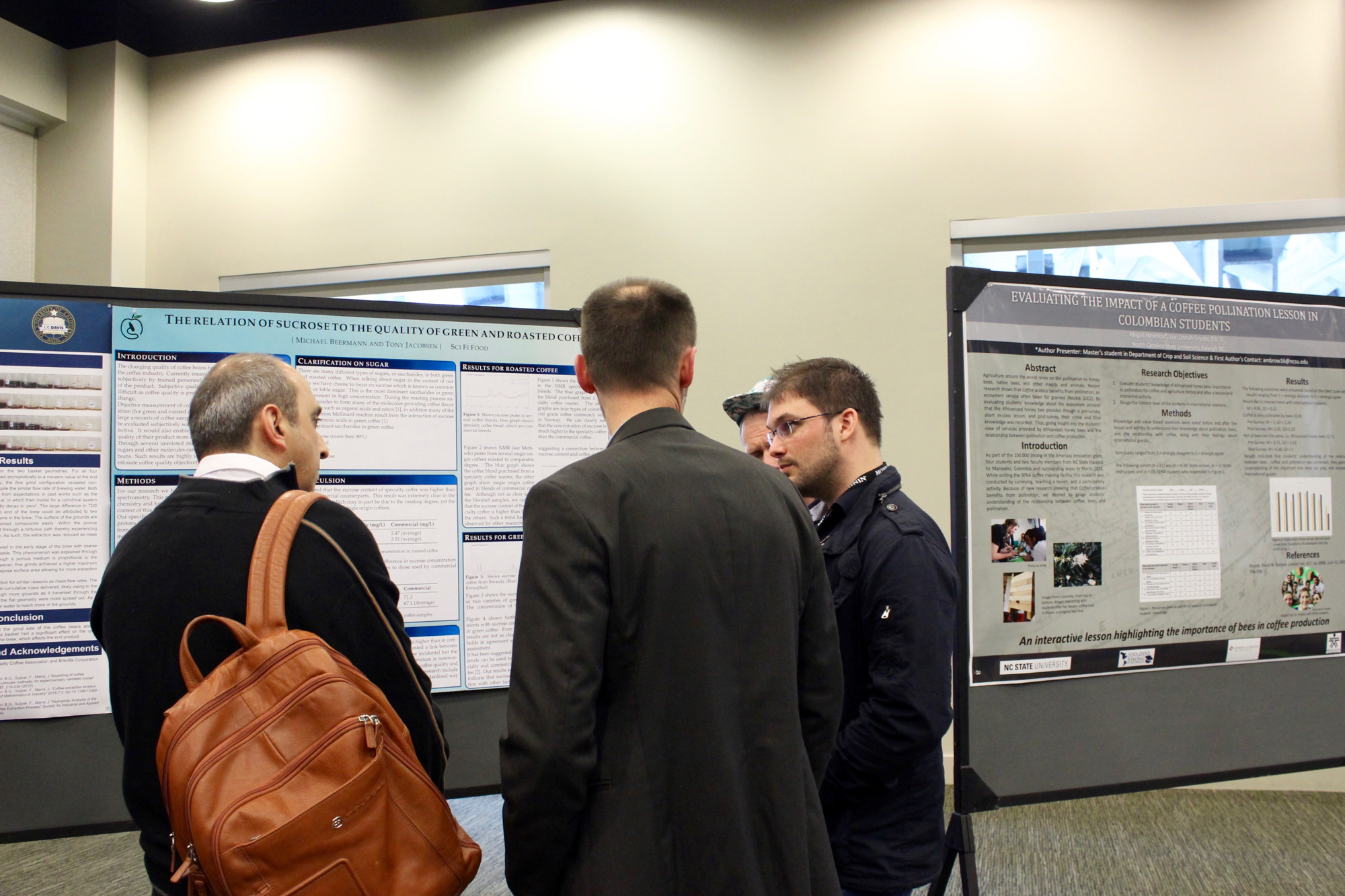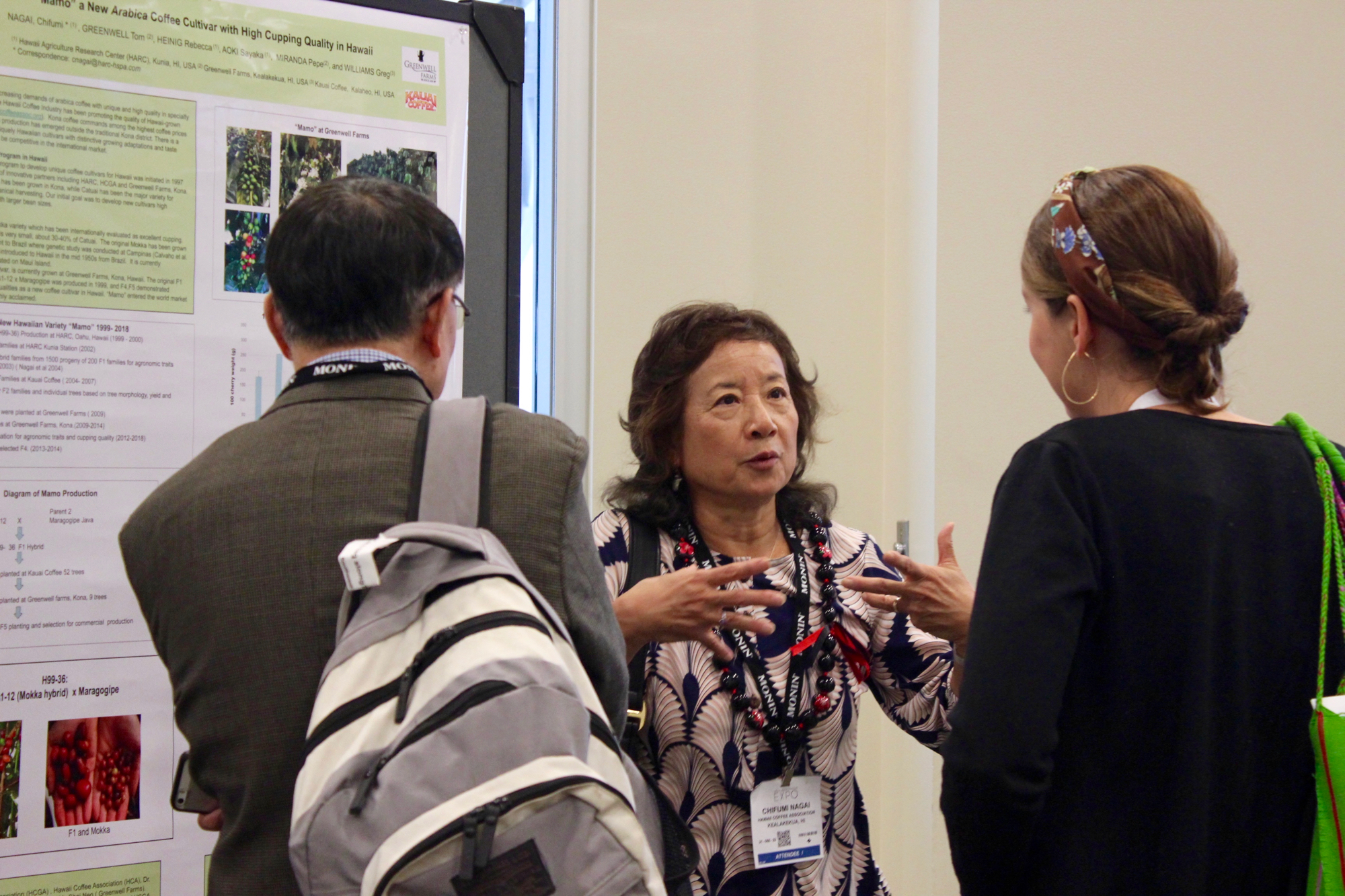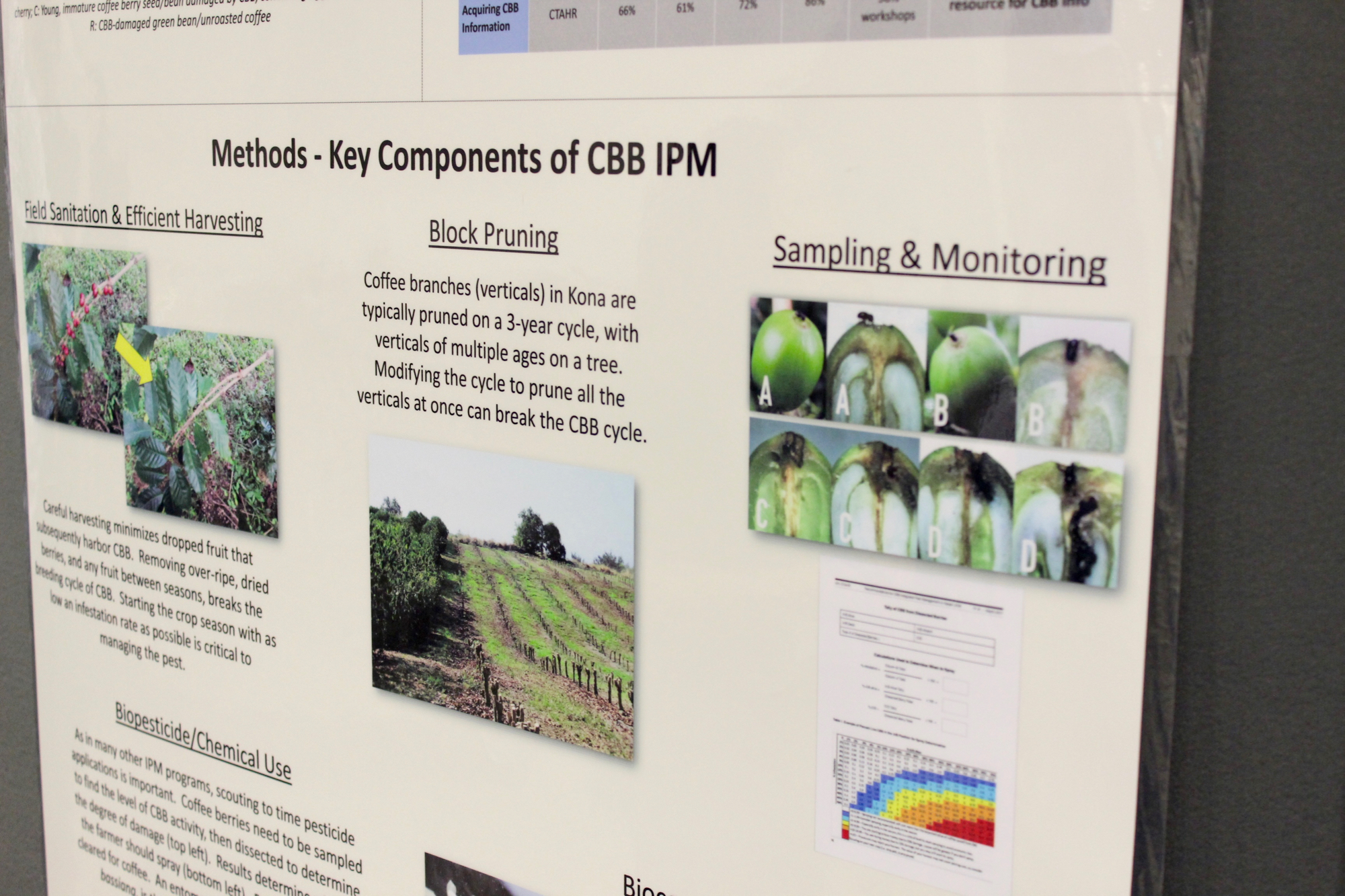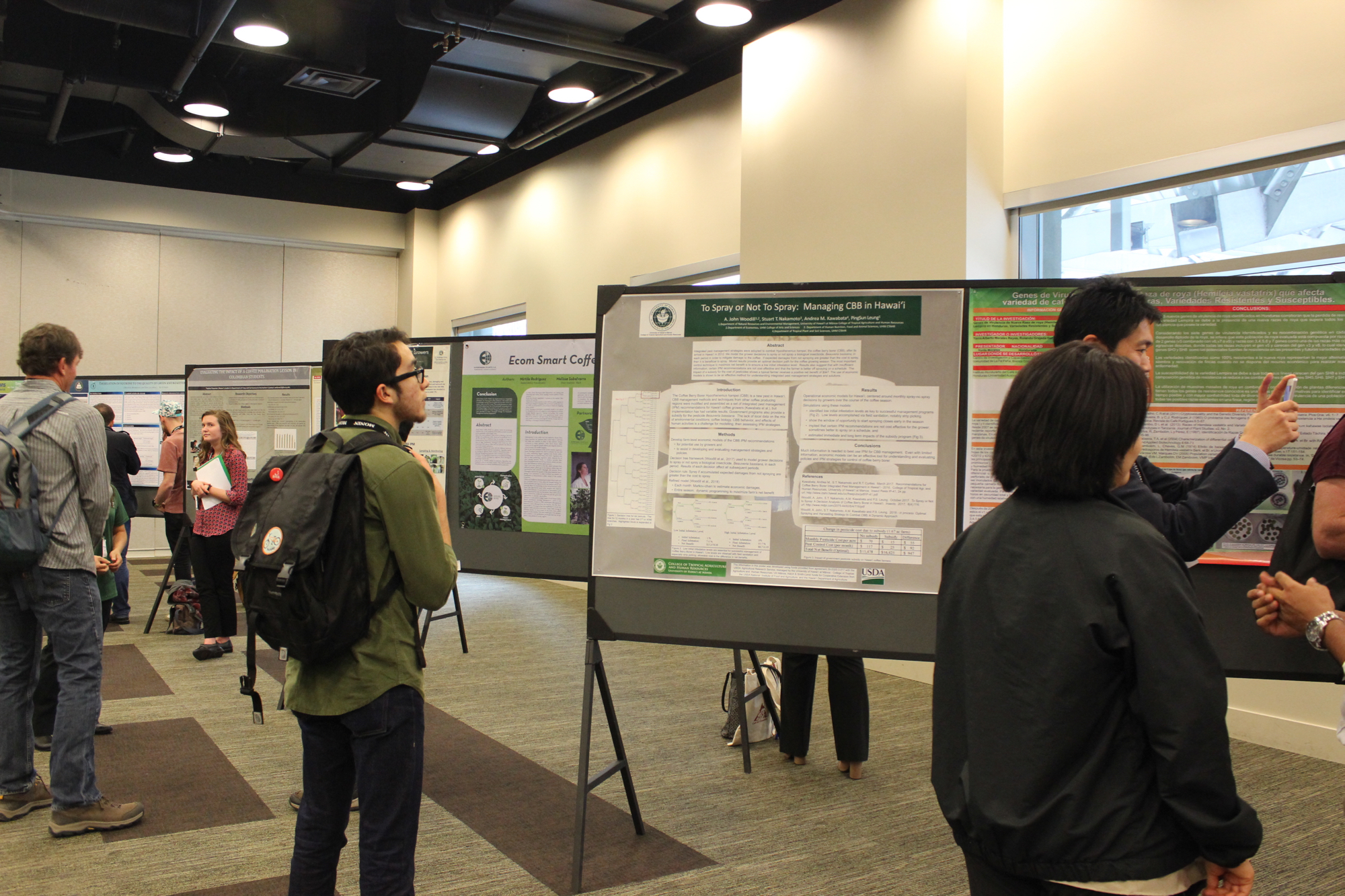
Research was presented by students at North Carolina State University on the next generation of coffee farmers. Daily Coffee News photo.
For as much as there is to love about coffee’s energizing effects, its cultural magnetism or even its aesthetics, it all boils down — or drips, or percolates, or pressurizes, if you will — to science.
Scientists and researchers from universities and organizations throughout the world presented their latest findings and in-progress work at the Specialty Coffee Expo this week in Seattle. A meet-and-greet with the scientists was held at the Expo’s Scientific Poster Session at the Washington State Convention Center on Friday, April 20, and posters are on display throughout the show.

Sci Fi Food researchers present findings on the impact of sucrose levels on coffee quality. Daily Coffee News photo.
“The poster session allows researchers from all over the world to share their results in a concise, understandable way with the specialty coffee community,” Heather Ward, Research Manager for the Specialty Coffee Association told Daily Coffee News. “Particularly exciting is the diversity of poster subjects, with topics like sensory science, education, agronomy, and extraction.”
Findings were presented for studies such as “Consumer Acceptance of Coffee Brewed with Flat Bottom vs Conical Brew Basket Geometries” presented by UC Davis researchers Scott Frost, Jean-Xavier Guinard, and William Ristenpart. This study was designed to evaluate the effects of these two factors on consumer preference.

Chifumi Nagai presents findings on Mamo, a new coffee cultivar with high cupping quality. Daily Coffee News photo.
Other projects included “The Relationship of Sucrose to the Quality of Green and Roasted Coffee” presented by Michael Beermann and Tony Jacobsen of Sci Fi Food, as well as “Mamo: A New Arabica Coffee Cultivar with High Cupping Quality in Hawaii” presented by researchers from the Hawaii Agriculture Research Center, Greenwell Farms, and Kauai Coffee.

Research was presented on ways to mitigate the impact of the Coffee Berry Borer on coffee crops. Daily Coffee News photo.
Researchers from Cooperative Extension, University of Hawaii presented findings on work being done to mitigate the effects of the Coffee Berry Borer (CBB), a tiny scolytid beetle that infests coffee cherries, damaging and eventually destroying the coffee bean within. According to the initial research, successful implementation has resulted in reported coffee infestation rates as low as under 1 percent.
Students from North Carolina State University presented a total of four different posters at the event, sharing their findings on research conducted in collaboration with The National Training Service (Servicio Nacional de Aprendizaje – SENA) in Colombia on the developing the future workforce for the coffee sector and curriculum for rural youth education, as well as a study evaluating the impact of coffee pollination by honey bees, native bees, and other insects and animals.
Posters are on display at The Conference Center, directly across from the Washington State Convention Center, on Level 3 through Sunday, April 22.
Lily Kubota
Lily Kubota is the managing editor and digital content manager for Roast Magazine. She is based in Southern California.








Comment